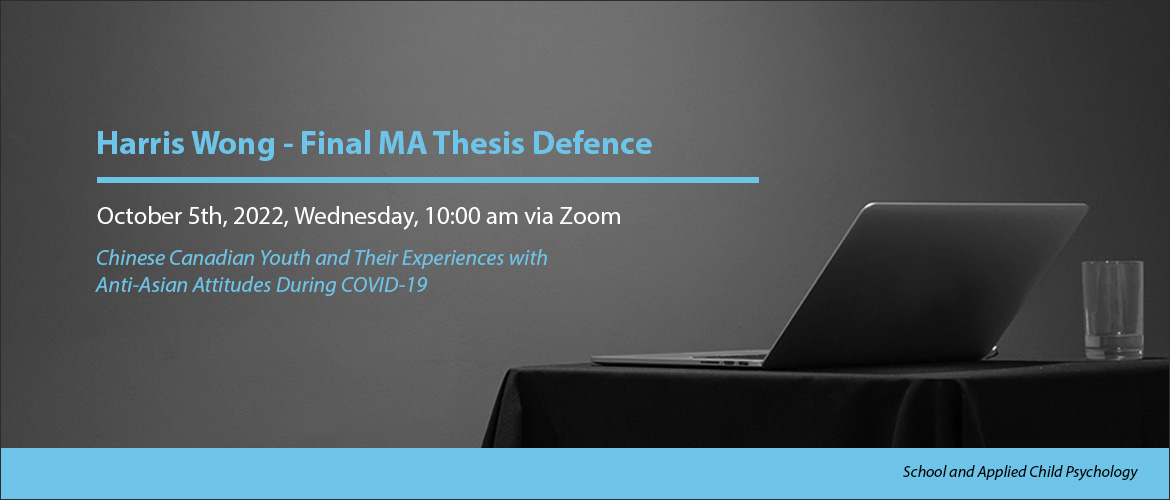
Final Thesis Defence: Harris Wong, MA in SACP
Wednesday October 5th, 2022
10 am on Zoom (If you want to attend contact Laurie Ford and she will forward the link)
Supervisory Committee:
Laurie Ford, Ph.D. (Supervisor)
Anusha Kassan, Ph.D. (Committee Member)
Owen Lo, Ph.D. (Arm’s Length Reviewer)
Title:
Chinese Canadian Youth and Their Experiences with Anti-Asian Attitudes During COVID-19
Abstract:
The outbreak of the COVID-19 pandemic has brought about anti-Asian attitudes around the world. There have been many documented discriminatory acts towards Asians online and in person. However, surveys given to Chinese Canadians have indicated that there is a very low reporting rate from youth under the age of 18 who indicate they are experiencing anti-Asian attitudes compared to youth and young adults over the age of 18. Chinese Canadian youth’s experiences with anti-Asian attitudes during the COVID-19 pandemic have largely been unexplored. It is important to give them the space to share their lived experiences and perceptions. Using Interpretive Phenomenological Analysis (IPA) as the methodological framework, the purpose of the study was to explore and understand Chinese Canadian youth’s perceptions and experiences of anti-Asian attitudes during COVID-19. Six self-identified Chinese Canadian youth aged 16-17 from across the Lower Mainland of British Columbia participated in semi-structured interviews about their perceptions and experiences surrounding how anti-Asian attitudes are addressed at school and what type of support they receive. Following the step-by-step data analysis procedures described within the IPA methodology, three superordinate themes and 11 subordinate themes were identified. Participants expressed that they are indeed experiencing anti-Asian attitudes in multiple environments, and report that they feel unsupported with their mental health at school and in the community. However, from their perceived lack of support, they were able to create their own support systems. Findings are discussed within the context of the existing literature. Finally, future directions for research and school-based practices as reported by participants, and the implications for practitioners are discussed.